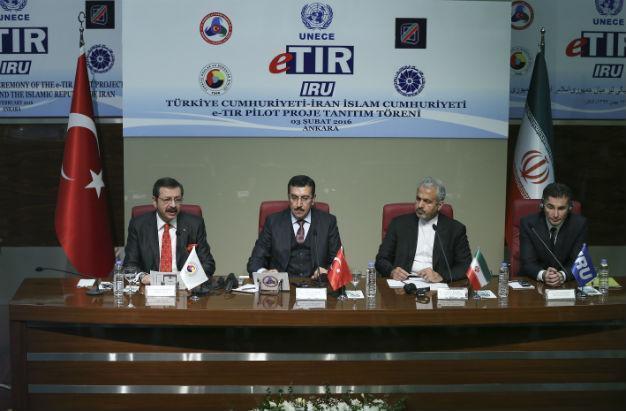Finalization of arbitration between Turkey, Iran is new beginning in gas ties: Iranian envoy
ANKARA

AA photo
The conclusion of an arbitration case between Turkey and Iran represents a new beginning to boosting ties in this field, according to Iran’s ambassador to Turkey, Ali Reza Bikdeli, who spoke at a press meeting on Feb. 3.
“The finalization of the arbitration case with Turkey has constituted a fresh beginning to gas cooperation between the two countries…With the ending of this arbitration process, there will be better cooperation in this field, I promise,” said the Iranian envoy, as quoted by Reuters.
Turkey, which buys around 10 billion cubic meters (bcm) of gas from Iran, opened two separate cases against Iran in 2012. One of the cases was over higher gas prices and another was over deficiencies in gas distribution. In the second case, the court sided with Iran.
The court ruled against Iran in its other gas dispute with Turkey, according officials from both countries speaking on Feb. 2.
Turkish Energy Minister Berat Albayrak confirmed that the court had ruled in the favor of Turkey.
“The International Arbitration Court has recently made a decision in the favor of Turkey. We’ll most probably receive a discount this year, which is very good for us. We plan to make a discount in gas prices this year,” Albayrak told journalists in Chile on Feb. 2.
Bikdeli also called the gas trade “a peculiar, professional way of trade,” which is made through solid and long-term contracts with “peculiar terms.”
Gas prices are set by specific contract terms, and it is these terms that defines an application to the arbitration court in case of disagreement.
“In this vein, the application to the arbitration court does not refer to opening a court file. On the contrary, it is for setting gas prices in line with an existing contract,” he said.
“As our specialists have explained since the beginning of the issue, actions will be in line with legal codes,” he said, adding that communication channels between specialists from both countries were open.
Bikdeli declined to give details about how much money will be repaid and when the money will come in, as “these are technical issues that need to be considered by the specialists.”
In a separate court case against Iran in 2004, Turkey’s gas grid was awarded a discount of 16.5 percent.
